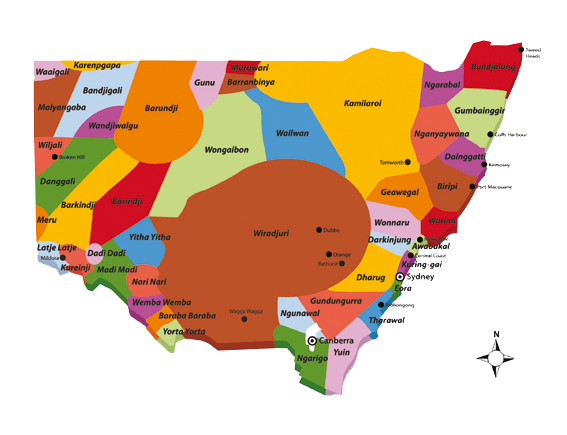How is Transport celebrating NAIDOC week?
There are a number of exciting events being held across Transport to celebrate NAIDOC Week.
See the table below for what's available!
Division/Agency |
Event Description |
Location, Date and Time |
Event Type (open or closed) |
Registration Details |
|---|---|---|---|---|
|
Sydney Metro All Team Meeting
|
NAIDOC Week Celebration
|
Thursday 5 November 2020
|
Closed
|
No registration
|
| CST Team Meetings |
In keeping with this years's theme, CST are asking teams to research their local Aboriginal history and culture to share in weekly team meetings. |
Monday 9 November - Friday 13 November 2020 |
Closed | No registration |
| NSW TrainLink | NAIDOC Week Celebrations |
Grand Concourse, Central Station Monday 9 November, 10:00am |
Open |
No registration *please note this event has limited capacity. Staff and members of public can watch from the Grand Concourse |
| STA Buses | NAIDOC Week Celebration |
Ryde Depot Monday 9 November 2020, 10:30am - 12:00pm |
Open | No registration |
| TfNSW | Launch of the Aboriginal Maritime Safety Plan |
Virtual Launch Tuesday 10 November 2020,10:00am - 12:00pm |
Open | No registration |
| Parkes Regional Office |
BBQ Bacon and Egg rolls and selection of slices and biscuits from Dreamtime Tukka Welcome to Country Talk and cultural event – Aboriginal Land Rights, Aboriginal land and cultural landscapes |
Parkes Regional Office Tuesday 10 November 2020, 10:00am |
Open | Please contact Lee Pearson for registration via email: lee.pearson@transport.nsw.gov.au |
| Dubbo Macquarie/ Wingewarra Street Office |
BBQ Bacon and Egg rolls and selection of slices and biscuits from Dreamtime Tukka Welcome to Country Talk and cultural event – Aboriginal Land Rights, Aboriginal land and cultural landscapes |
Dubbo Macquarie/ Wingewarra Street Office Tuesday 10 November 2020, 10:00am |
Open | Please contact Lee Pearson for registration via email: lee.pearson@transport.nsw.gov.au |
| Sydney Trains |
Welcome to Country and smoking ceremony, cultural dance performance, and 'Always' artwork launch by Reko Rennie. |
Redfern station Thursday 12 November 2020, 9am-10:30am |
Open | No registration |
| TfNSW |
The two highest scoring trivia teams will be invited to a special breakfast with a prominent Aboriginal leader who will provide unique insight into Aboriginal culture – stay tuned for more details |
Doltone House - Darling Island Ground Floor 48 Pirrama Road Pyrmont, NSW 2009 Thursday 12 November 2020, 11:00am- 1:30pm |
By ticket only |
Register now. |
| Point to Point Commission |
NAIDOC Week celebrations including:
|
Thursday 12 November 2020, 11:00am – 12:15pm | Closed | No registration |
| NSW TrainLink (Central Coast) |
Morning tea NAIDOC celebration featuring Mark Champley as guest. |
Gosford Station - Concourse Friday 13 November 2020, 9:00am |
Closed | No registration |
| TfNSW North Region |
In Region North C&P are partnering with the Aboriginal Engagement Section of CST to offer a live streaming conversation with a panel of Aboriginal history, culture and language experts including Professor John Maynard, Dr Raymond Kelly and Mr Gary Williams. The conversation will explore the interrelationships between Aboriginal land, people and culture and start to ponder how Transport for NSW can assist language revitalisation efforts |
Friday 13 November 2020, 11:00am-12:00pm | Open | Click here to join the livestream event |
|
Rail Delivery |
Rail Delivery Aboriginal Inclusion Working Group has organised a Branch event to celebrate NAIDOC Week on Monday 16 November. Join us to learn more about:
|
Level 4, Community Hub (Beach area of floor), Macquarie Park Office, 7 Harvest Street, Macquarie Park, NSW, 2113 Monday 16 November 2020, 10:00am-11:30am |
Open |
This event has both face to face and live stream options Alternatively click here to join virtually. |
| TfNSW South Region |
The Southern Aboriginal Engagement team and local Aboriginal artists will be running an interactive workshop to immerse yourselves in a cultural space of yarning, weaving and rope making for the day at Warrigal Employment. |
Warrigal Employment (1 Bakers Lane, Windang, NSW) Tuesday 17 November 2020, 9:00am - 2:00pm |
Open |
For more details please contact Jo Damcevski and to RSVP click here *Unfortunately under current circumstances there is a cap on attendance and geographical reach of the event. |
| Lithgow Depot |
Welcome to Country , talk on NAIDOC and Aboriginal Land Council Morning Tea. |
Lithgow Depot Friday 27 November 2020, 9:00am |
Closed | No registration |













